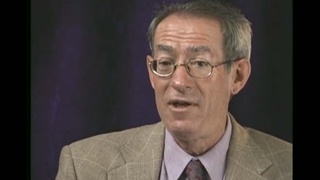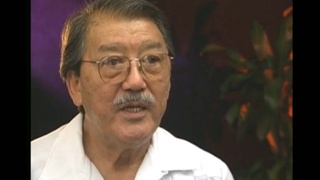Interviews
Response to loyalty questionnaire
My parents didn't say very much, except that they said, What good is your citizenship? You claim that you're Americans, and you were so proud of your citizenship, but here it didn't mean anything. We were in camp just like the Isseis, and we didn't have no say-so or anything. So they didn't, they, of course, thought, Why in the world would anyone want to volunteer, go into the army and fight for the United States, to give up their life for a country that had them imprisoned? So I think that it was a logical thought for Isseis to think that way, because here we were, we were all in the same boat.
Date: September 15-17, 2004
Location: Washington, US
Interviewer: Alice Ito
Contributed by: Denshō: The Japanese American Legacy Project.
Explore More Videos

Not recognizing father after reunion at Crystal City, Texas
(1937 - 2021) Teacher

A child's memories of activities at Crystal City, Texas
(1937 - 2021) Teacher


Japanese American railroad workers are fired following the bombing of Pearl Harbor
(b. 1923) Chick sexer


A racist encounter at a movie theater following the bombing of Pearl Harbor
(b. 1923) Chick sexer

Losing job with railroad because of being Japanese American
(b. 1923) Chick sexer


Traveling to Manzanar
(b. 1921) Nisei veteran who served in the occupation of Japan


Recalling Pinedale and Tule Lake concentration camps
Judge, only Japanese American to serve on CWRIC.

On the Impact of the Camp Experience
(b. 1942) The first Asian American woman judge

Impressions of student relocation in South Dakota
Judge, only Japanese American to serve on CWRIC.

Becoming active in the Civil Rights Movement
Judge, only Japanese American to serve on CWRIC.

A memorable CWRIC testimony of an unjust situation
Judge, only Japanese American to serve on CWRIC.
